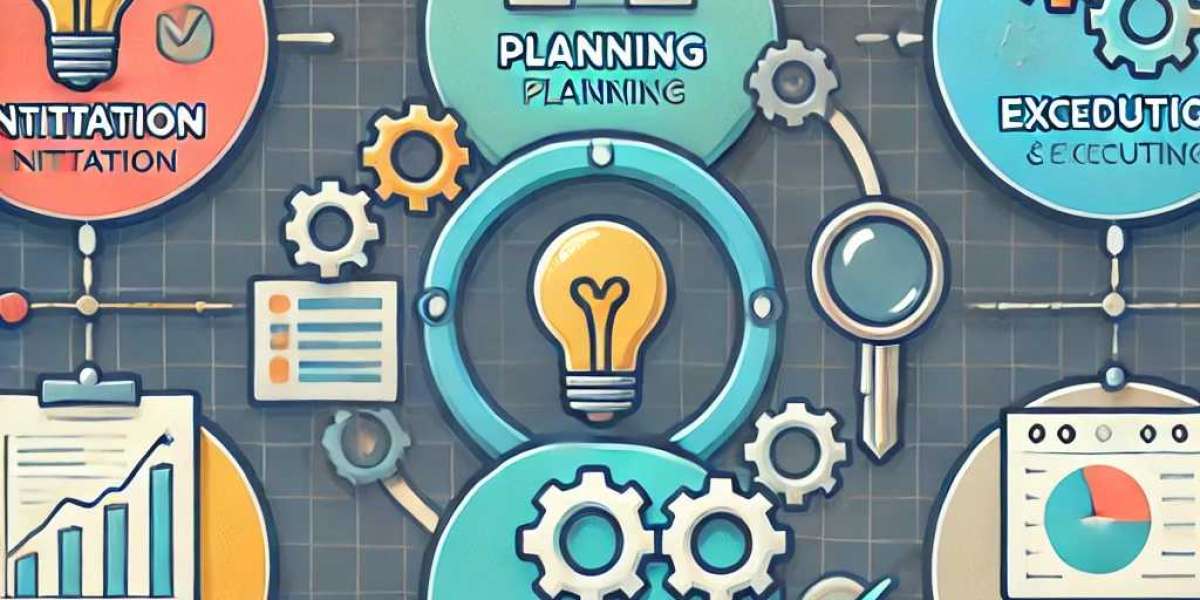Grasping these processes is key for good project management. They help make sure projects finish on time, stay within scope, and meet budget limits. This article explores all 49 processes. It gives a clear overview for project management professionals.
- Project Integration Management
This knowledge area focuses on unifying and coordinating various project elements.
- Develop Project Charter: Formally authorizes a project or phase and documents initial requirements.
- Develop Project Management Plan: Integrates subsidiary plans into a comprehensive project management plan.
- Direct and Manage Project Work: Oversees tasks in the project management plan.
- Manage Project Knowledge: Use what you know and create new ideas to reach project goals.
- Monitor and Control Project Work: Track project progress. Review and report how it compares to performance goals.
- Perform Integrated Change Control: Reviews and manages changes across the project.
- Close Project or Phase: Wraps up all tasks to officially end the project or phase.
- Project Scope Management
Ensures the project includes all necessary work and only the work required.
- Plan Scope Management: This plan outlines how to define and control the scope.
- Collect Requirements: Determines and documents stakeholders' needs and requirements.
- Define Scope: Develops a detailed project and product description.
- Create WBS: Breaks down project deliverables into smaller, manageable components.
- Validate Scope: Formalizes acceptance of completed deliverables.
- Control Scope: Monitors the project scope and manages changes to the scope baseline.
- Project Schedule Management
Manages the timely completion of the project.
- Plan Schedule Management: Sets rules for planning, creating, and managing the project schedule.
- Define Activities: Identify specific actions to produce project deliverables.
- Sequence Activities: Determine the order of activities and their relationships.
- Estimate Activity Durations: Approximates the time each activity will take.
- Develop Schedule: Analyzes activity sequences and durations to create the project schedule.
- Control Schedule: Monitors the project schedule and manages changes to the schedule baseline.
- Project Cost Management
Involves planning, estimating, budgeting, financing, funding, managing, and controlling costs.
- The Plan Cost Management shows how the team will estimate and manage costs.
- Estimate Costs: Develops an approximation of the monetary resources needed.
- Determine Budget: Aggregate estimated costs to establish an authorized cost baseline.
- Control Costs: Monitors project costs and manages changes to the cost baseline.
- Project Quality Management
Ensures that the project meets the required quality standards.
- Plan Quality Management: Identifies quality requirements and documents how the project will comply.
- Manage Quality: Translates the quality management plan into executable quality activities.
- Control Quality: Monitors and records the results of quality activities to assess performance.
- Project Resource Management
Identifies, acquires, and manages the resources needed for project completion.
- Plan Resource Management: Defines how to estimate, get, and manage resources.
- Estimate Activity Resources: Estimate team resources and materials needed.
- Get Resources: Obtain team members, facilities, and equipment.
- Develop Team: Improves competencies and team interaction.
- Manage Team: Tracks team performance and manages conflicts.
- Control Resources: Ensures physical resources are available as planned.
- Project Communications Management
Ensures timely and appropriate planning, collection, creation, distribution, and monitoring of project information.
- Plan Communications Management: Develops an approach for project communications.
- Manage Communications: Ensures timely and appropriate collection and dissemination of information.
- Monitor Communications: Ensures stakeholder information needs are met.
- Project Risk Management
Identifies, analyses, and responds to project risks.
- Plan Risk Management: Defines how to conduct risk management activities.
- Identify Risks: Determines risks that could affect the project.
- Perform Qualitative Risk Analysis: Prioritizes risks for further analysis.
- Perform Quantitative Risk Analysis: Numerically analyses the effect of risks.
- Plan Risk Responses: Develops options to enhance opportunities and reduce threats.
- Implement Risk Responses: Implements agreed-upon risk response
To learn more about project management process: Click here
Website: www.icertglobal.com







